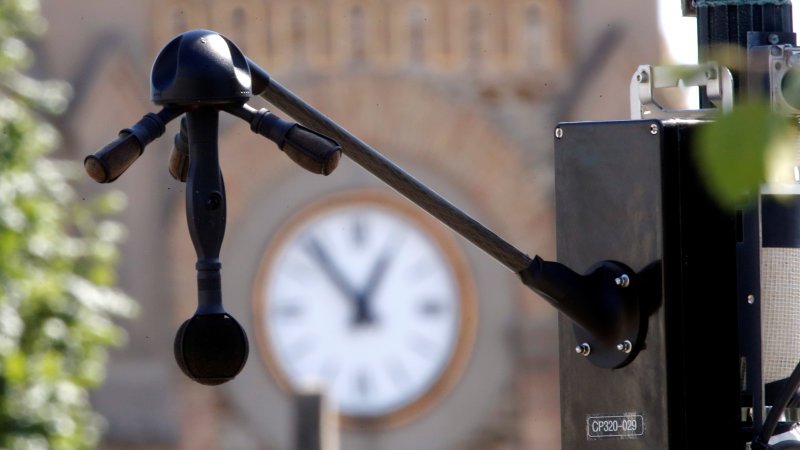Paris suburb pioneers 'noise radar' to fine roaring motorcycles

The device, which the mayor calls a “noise radar”, has been installed on a lamppost in the center of Villeneuve-le-Roi, a town next to Paris Orly airport.
It will be activated as soon as a new government draft law permitting such systems is passed, said Mayor Didier Gonzales. The town will link the sound recordings to police CCTV cameras and automatically issue tickets to offenders.
“Noise is the bane of modern life and a major health issue. It hurts people like secondary smoking does,” said Gonzales, who is also head of noise pollution agency Bruitparif.
The draft law, expected to be voted on this autumn, will allow local authorities to experiment with systems to record and fine riders who exceed noise limits. France already has legislation limiting vehicle noise, but it is hard to enforce as it relies on police catching offenders individually.
“We have nothing against Ferraris or Harley Davidsons, but their owners sometimes like to demonstrate their vehicles’ power and the noise really troubles residents,” said Villeneuve official Remy Jourdan.
ACOUSTIC WAKE
The new device, developed by Bruitparif engineers, has four microphones that measure decibel levels every tenth of a second and can triangulate where a sound originates.
It displays a picture of an acoustic wake as a trace of colored dots behind a moving source of loud noise, such as a souped-up motorcycle.
“With this tool, it is not possible to dispute who made the noise,” said Gonzalez.
Nearly 40 of the devices have been in operation for several months near busy bars in Paris entertainment areas, and another 17 have been installed at major building sites, Bruitparif director Fanny Mietlicki said.
Bruitparif is now beginning to track vehicle noise and also installed one in Saint-Forget, a hilly rural area near Paris popular with motorcyclists. In September it will install two in central Paris.
So far, the system is in trial mode only and no fines have been issued, but Villeneuve is in contact with the transport ministry to activate it as soon as the new law is passed. The government plans a two-year try-out period to test technology and define the noise levels that will trigger fines.
Related News


